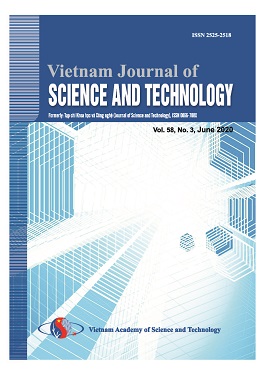New Scopus Index List: Vietnam Journal of Science and Technology
 Vietnam Journal of Science and Technology (VJST) is pleased to notice:
Vietnam Journal of Science and Technology (VJST) is pleased to notice:
With significant contributions from the community of scientists, the VJST has been listed in SCOPUS Index since November 2022.



